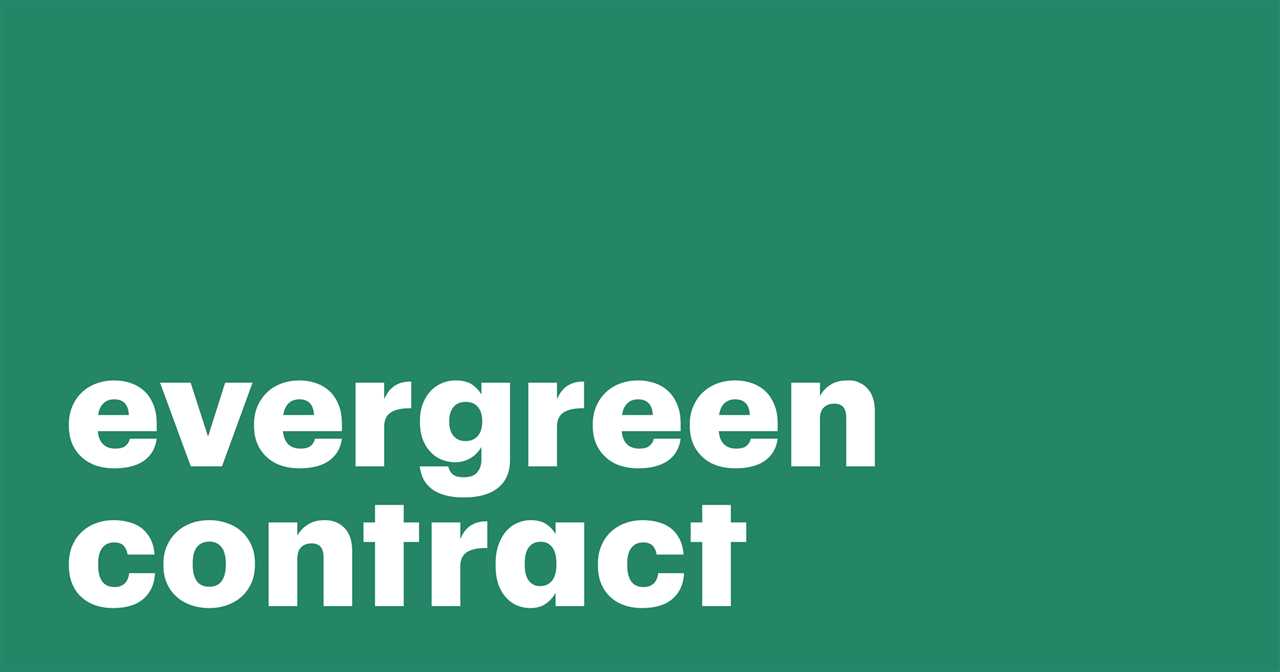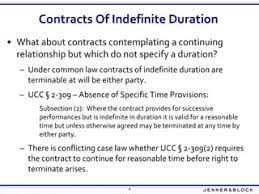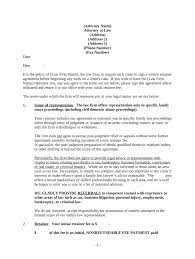Evergreen Contract: Definition, Uses, Cancellation, and Examples

Definition
An evergreen contract is a contractual agreement that continues indefinitely until one of the parties decides to terminate it. Unlike fixed-term contracts, which have a specific end date, evergreen contracts are designed to automatically renew for a specified period of time, typically on a monthly or yearly basis. The contract will continue to renew until one of the parties provides notice of cancellation.
Uses
Evergreen contracts are commonly used in situations where ongoing services or products are needed. For example, a software-as-a-service (SaaS) company may use evergreen contracts to provide its customers with continuous access to its software platform. This allows the customer to use the software without interruption and provides the SaaS company with a predictable revenue stream.
Another common use of evergreen contracts is in the telecommunications industry. Mobile phone service providers often use evergreen contracts to ensure that their customers continue to receive service without any gaps. This helps to retain customers and reduces the need for them to sign new contracts every time their current contract expires.
Cancellation
Cancelling an evergreen contract typically requires one of the parties to provide notice within a specified timeframe. This timeframe is usually outlined in the contract itself and can vary depending on the agreement between the parties. If notice of cancellation is not provided within the specified timeframe, the contract will automatically renew for another term.
Examples
Here are a few examples of evergreen contracts:
| Industry | Example |
|---|---|
| Software-as-a-Service | A company signs an evergreen contract with a SaaS provider to access their project management software on a monthly basis. |
| Telecommunications | A customer signs an evergreen contract with a mobile phone service provider to receive cell phone service on a yearly basis. |
| Utilities | A homeowner signs an evergreen contract with a gas company to receive natural gas service for their home on a monthly basis. |
These examples demonstrate how evergreen contracts can be used in various industries to provide ongoing services or products to customers.
An evergreen contract is a type of contract that automatically renews itself at the end of its initial term for a specified period of time. This means that unless one party provides notice of termination, the contract will continue indefinitely. Evergreen contracts are commonly used in various industries and can have different terms and conditions depending on the agreement between the parties involved.
Evergreen contracts are often used in situations where there is an ongoing relationship between the parties involved. For example, a software company may have an evergreen contract with its customers, ensuring that the software license remains active unless the customer decides to cancel it. Similarly, a service provider may have an evergreen contract with a client, ensuring that the services will continue to be provided unless either party decides to terminate the agreement.
Another important aspect of evergreen contracts is the notice period for termination. While the contract may automatically renew, there is usually a provision that allows either party to terminate the contract by providing a specified notice period. This notice period can vary depending on the agreement and may range from a few days to several months.
Common Uses of Evergreen Contracts
Evergreen contracts are widely used in various industries and business sectors. Here are some common uses of evergreen contracts:
1. Subscription Services: Many companies offering subscription-based services, such as streaming platforms, software providers, and online magazines, use evergreen contracts. These contracts allow customers to continue using the services on an ongoing basis until they choose to cancel.
2. Maintenance and Support Agreements: Companies that provide maintenance and support for products or equipment often use evergreen contracts. These contracts ensure that the service provider continues to provide necessary support and maintenance for the agreed-upon duration, typically until the customer decides to terminate the contract.
3. Supply Agreements: Evergreen contracts are commonly used in supply chain management to ensure a steady and uninterrupted supply of goods or materials. Suppliers and buyers may enter into evergreen contracts to establish long-term relationships and ensure a consistent supply of products.
4. Professional Services: Professionals such as lawyers, consultants, and accountants often use evergreen contracts for their services. These contracts allow for an ongoing relationship between the professional and the client, with services provided on an as-needed basis until either party decides to terminate the contract.
5. Rental Agreements: Landlords and tenants may enter into evergreen contracts for rental properties. These contracts automatically renew at the end of each term, providing the tenant with continued occupancy unless either party gives notice to terminate the agreement.
6. Outsourcing Agreements: Companies that outsource certain functions or tasks often use evergreen contracts. These contracts ensure that the outsourcing provider continues to provide the agreed-upon services for the specified duration, typically until the client decides to end the contract.
Overall, evergreen contracts offer flexibility and convenience for ongoing business relationships. They provide a framework for continuous service provision or product supply, allowing both parties to focus on their core activities without the need for frequent contract renegotiation.
Cancellation of Evergreen Contracts
Canceling an evergreen contract can be a complex process, as it often involves legal considerations and potential financial implications. Here are some key points to consider when canceling an evergreen contract:
1. Review the Contract Terms
2. Provide Notice

Most evergreen contracts require a notice period for cancellation. This means you must inform the other party in advance of your intention to terminate the contract. The notice period can vary depending on the agreement, so make sure to comply with the specified timeframe.
3. Communicate with the Other Party
Once you have reviewed the contract terms and provided notice, it is essential to communicate with the other party involved. Discuss your reasons for cancellation and try to reach a mutual agreement if possible. Open and transparent communication can help mitigate any potential conflicts or disputes.
4. Assess Financial Implications
Cancellation of an evergreen contract may involve financial implications, such as cancellation fees or penalties. Evaluate the financial impact of canceling the contract and consider whether it outweighs the benefits of termination. It may be necessary to consult with legal or financial advisors to fully understand the potential costs.
5. Document the Cancellation
When canceling an evergreen contract, it is crucial to document the cancellation process. Keep records of all communication, including notices, agreements, and any relevant documentation. This documentation can serve as evidence in case of any future disputes or legal issues.
Remember, canceling an evergreen contract should be approached with caution and careful consideration. It is advisable to seek legal advice to ensure compliance with contractual obligations and protect your interests.
Examples of Evergreen Contracts

Evergreen contracts are commonly used in various industries and can be found in a wide range of business agreements. Here are a few examples of how evergreen contracts are utilized:
1. Software Licensing
In the software industry, evergreen contracts are often used for software licensing agreements. These contracts allow the customer to use the software indefinitely, with automatic renewal at the end of each term. This ensures that the customer always has access to the latest updates and features of the software.
2. Subscription Services
Many subscription-based services, such as streaming platforms or online magazines, use evergreen contracts. These contracts automatically renew the subscription at the end of each billing cycle, ensuring uninterrupted access to the service for the customer. The customer can cancel the subscription at any time, but if they don’t, it will continue indefinitely.
3. Maintenance and Support Agreements
In industries like IT or manufacturing, evergreen contracts are often used for maintenance and support agreements. These contracts ensure that the service provider will continue to provide maintenance and support services for a specific period, with automatic renewal at the end of each term. This allows the customer to have ongoing support for their equipment or software.
4. Supply Agreements
In supply chain management, evergreen contracts are commonly used for supply agreements. These contracts establish an ongoing relationship between a supplier and a buyer, with automatic renewal at the end of each term. This ensures a steady supply of goods or services for the buyer, while providing stability and predictability for the supplier.
5. Real Estate Leases
Evergreen contracts are also used in real estate leases. These contracts allow tenants to occupy a property for an indefinite period, with automatic renewal at the end of each lease term. This provides stability for both the tenant and the landlord, as it eliminates the need for frequent renegotiation or searching for new tenants.

Emily Bibb simplifies finance through bestselling books and articles, bridging complex concepts for everyday understanding. Engaging audiences via social media, she shares insights for financial success. Active in seminars and philanthropy, Bibb aims to create a more financially informed society, driven by her passion for empowering others.
